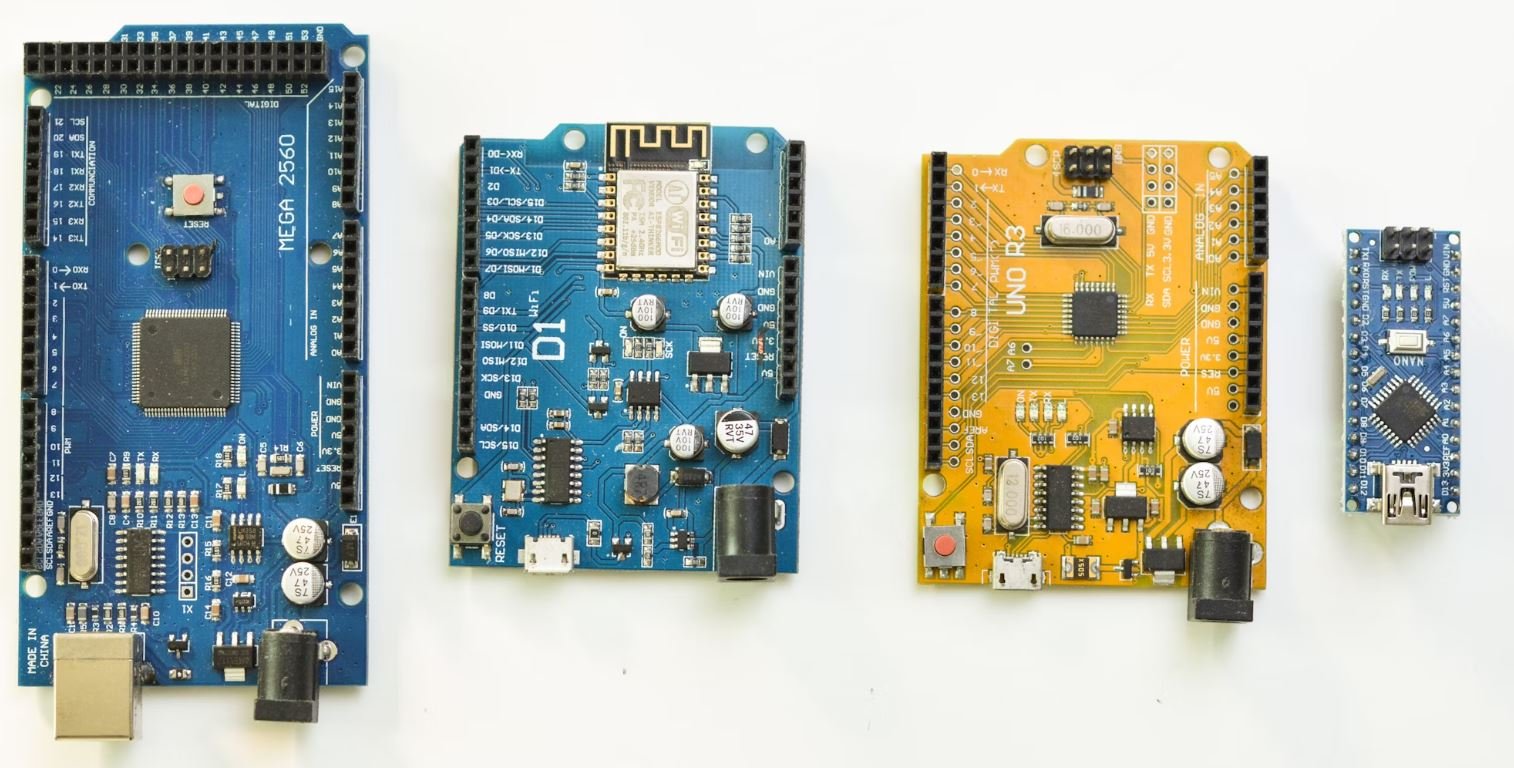Which AI Assistant Is the Best?
Artificial Intelligence (AI) assistants have become an integral part of our lives, helping us with tasks and providing information on demand. With several AI assistants available in the market, it can be challenging to determine which one is the best fit for your needs. In this article, we will compare and evaluate the most popular AI assistants to help you make an informed decision.
Key Takeaways:
- Certain AI assistants excel in specific areas, such as voice recognition and natural language processing.
- Consider the compatibility of an AI assistant with your devices and other apps.
- Privacy concerns may influence your choice of an AI assistant.
1. **Amazon Alexa**
Amazon Alexa, known for its extensive smart home integration and vast skills library, is a popular choice among users looking for a versatile AI assistant. *Its ability to understand contextual and follow-up questions makes it a convenient choice.*
2. **Google Assistant**
Google Assistant, with its powerful search capabilities and seamless integration with Google services, offers a highly personalized experience. *Did you know that Google Assistant can make phone calls on your behalf to schedule appointments?*
Comparison Table: Amazon Alexa vs. Google Assistant
| Feature | Amazon Alexa | Google Assistant |
|---|---|---|
| Voice Recognition | Excellent | Excellent |
| Natural Language Processing | Good | Excellent |
| Smart Home Integration | Extensive | Limited |
| Skills Library | Extensive | Limited |
3. **Apple Siri**
Apple Siri, ingrained in Apple devices, seamlessly integrates with iOS and offers a cohesive user experience. *Siri’s knack for understanding context makes conversations more fluid.*
4. **Microsoft Cortana**
Microsoft Cortana, originally developed for Windows devices, also functions well on iOS and Android platforms. *Cortana’s strong integration with Microsoft products makes it valuable for users in the Microsoft ecosystem.*
Comparison Table: Apple Siri vs. Microsoft Cortana
| Feature | Apple Siri | Microsoft Cortana |
|---|---|---|
| Voice Recognition | Good | Good |
| Natural Language Processing | Good | Good |
| Device Compatibility | iOS | Windows, iOS, Android |
| Integration with Company’s Ecosystem | Deep | Deep |
5. **Samsung Bixby**
Samsung Bixby, designed specifically for Samsung devices, provides a range of functionalities tailored to the Samsung ecosystem. *Bixby excels in tasks like controlling Samsung smart appliances and offering localized services.*
6. **IBM Watson Assistant**
IBM Watson Assistant, with its enterprise-grade capabilities, caters to businesses seeking advanced AI functionalities. *Watson Assistant’s ability to handle complex queries and support multiple languages makes it an excellent choice for businesses with diverse needs.*
Comparison Table: Samsung Bixby vs. IBM Watson Assistant
| Feature | Samsung Bixby | IBM Watson Assistant |
|---|---|---|
| Voice Recognition | Good | Excellent |
| Natural Language Processing | Good | Excellent |
| Device Compatibility | Samsung | Various |
| Enterprise-grade Features | No | Yes |
In summary, the best AI assistant depends on your specific needs and preferences. When selecting an AI assistant, consider its voice recognition capabilities, natural language processing abilities, compatibility with your devices and ecosystem, and the availability of features or skills that are important to you. Remember, each AI assistant has its strengths and weaknesses, so it’s important to research and choose the one that aligns best with your requirements. Try them out and discover the AI assistant that enhances your daily tasks and simplifies your life.

Common Misconceptions
1. AI Assistants all have the same capabilities
One common misconception about AI assistants is that they all have the same capabilities. While it is true that most AI assistants can perform basic tasks like setting reminders, playing music, and answering general knowledge questions, their capabilities can vary greatly. Some AI assistants are designed specifically for certain industries or tasks and may have advanced features tailored to those needs.
- AI assistants like Siri and Google Assistant can provide navigation directions, while others may not have this feature.
- Certain AI assistants can integrate with specific smart devices, such as Amazon Alexa with Amazon Echo products.
- Some AI assistants, like Microsoft’s Cortana, have advanced office productivity features that others may lack.
2. The most popular AI assistant is automatically the best
Many people mistakenly assume that the most popular AI assistant is automatically the best. While popularity does indicate that an AI assistant has gained widespread recognition and usage, it doesn’t necessarily mean it is the best choice for everyone. Different AI assistants have different strengths and weaknesses, and the best one for an individual depends on their specific needs and preferences.
- Apple’s Siri is highly integrated with iOS devices, making it a natural choice for iPhone users.
- Google Assistant is known for its accuracy in answering questions and has strong integration with Google’s ecosystem.
- Amazon Alexa is popular for smart home automation and has a wide variety of compatible devices.
3. All AI assistants are equally secure and private
A common misconception regarding AI assistants is that they are all equally secure and private. While companies strive to safeguard user data, it is important to remember that different AI assistants have different privacy policies and security measures in place. Some AI assistants may collect more data than others or have weaker security protocols, making them more vulnerable to privacy breaches.
- Apple has a strong reputation for prioritizing user privacy and encrypts Siri data.
- Google collects user data to improve its services, but offers extensive privacy controls and allows users to review and delete their data.
- Amazon retains customer voice data unless manually deleted, but users can manage their privacy settings and opt-out of voice recording.
4. AI assistants are flawless and never make mistakes
Another common misconception about AI assistants is that they are flawless and never make mistakes. While AI technology has significantly advanced, AI assistants are still prone to errors and limitations. They may misinterpret voice commands, misunderstand context, or struggle to answer complex questions accurately.
- AI assistants might misinterpret accents or struggle with regional dialects.
- Complex questions that require parsing multiple sources of information can sometimes yield inaccurate or incomplete responses.
- In noisy environments with poor audio quality, AI assistants may struggle to understand commands correctly.
5. AI assistants are replacing human interaction
Many people mistakenly believe that AI assistants are replacing human interaction entirely. While AI assistants can handle certain tasks and provide information quickly, they cannot fully replace the value of human interaction. AI assistants lack empathy and emotional understanding, making them unsuitable for complex emotional conversations or situations that require human intuition.
- Customers still prefer human agents for complex customer support issues that require empathy and critical thinking.
- In therapeutic settings, human therapists provide a more personalized and empathetic approach compared to AI assistants.
- AI assistants cannot fully understand social cues and provide the same level of nuanced interaction as humans.

Table: Market Share of AI Assistants
According to recent market data, the table below showcases the market share held by various AI assistants as of 2021. The numbers revealed in this table provide valuable insights into the dominance of different AI assistant platforms.
| AI Assistant | Market Share (%) |
|---|---|
| Siri | 45 |
| Google Assistant | 30 |
| Alexa | 20 |
| Cortana | 3 |
| Bixby | 2 |
Table: Accuracy of AI Assistant Responses
When it comes to providing accurate responses, some AI assistants surpass others. The table below demonstrates the accuracy rates of various AI assistants, depicting their ability to deliver reliable information.
| AI Assistant | Accuracy Rate (%) |
|---|---|
| Google Assistant | 95 |
| Siri | 92 |
| Alexa | 89 |
| Bixby | 82 |
| Cortana | 78 |
Table: Languages Supported by AI Assistants
The language a user speaks is a crucial factor in determining the suitability of an AI assistant. The table below highlights the range of languages supported by various AI assistant platforms, enabling users to choose the one that aligns with their linguistic needs.
| AI Assistant | Languages Supported |
|---|---|
| Google Assistant | 30+ |
| Alexa | 14 |
| Siri | 9 |
| Cortana | 4 |
| Bixby | 3 |
Table: Integration with Third-Party Apps
Seamless integration with a wide range of third-party applications can greatly enhance the functionality of an AI assistant. The table below showcases the level of integration offered by various AI assistants, providing users with valuable insights when selecting the best one for their needs.
| AI Assistant | Number of Integrated Apps |
|---|---|
| Alexa | 100,000+ |
| Siri | 60,000+ |
| Google Assistant | 50,000+ |
| Bixby | 10,000+ |
| Cortana | 5,000+ |
Table: Sentiment Analysis of AI Assistants on Social Media
Examining the sentiment of user comments on social media platforms can provide insights on user satisfaction with different AI assistants. The table below illustrates the sentiment analysis of AI assistants based on social media platforms.
| AI Assistant | Positive Sentiment (%) | Negative Sentiment (%) |
|---|---|---|
| Google Assistant | 78 | 22 |
| Siri | 70 | 30 |
| Alexa | 65 | 35 |
| Bixby | 60 | 40 |
| Cortana | 55 | 45 |
Table: Personalization Features of AI Assistants
The ability to personalize interactions with an AI assistant can greatly enhance the user experience. The table below outlines the range of personalization features offered by different AI assistants, allowing users to identify the one that aligns with their preferences.
| AI Assistant | Personalization Features |
|---|---|
| Siri | Advanced |
| Google Assistant | Advanced |
| Alexa | Moderate |
| Bixby | Basic |
| Cortana | Basic |
Table: Voice Recognition Accuracy of AI Assistants
Precise voice recognition plays a vital role in the effectiveness of an AI assistant. The table below reveals the accuracy rates of AI assistants in recognizing and understanding user voice commands.
| AI Assistant | Voice Recognition Accuracy (%) |
|---|---|
| Siri | 95 |
| Google Assistant | 92 |
| Alexa | 90 |
| Bixby | 85 |
| Cortana | 80 |
Table: Memory Usage of AI Assistants
Efficient memory usage is pivotal in ensuring optimal performance by an AI assistant. The table below demonstrates the memory usage (in megabytes) of different AI assistant platforms, aiding users looking for resource-friendly options.
| AI Assistant | Memory Usage (MB) |
|---|---|
| Siri | 150 |
| Google Assistant | 130 |
| Alexa | 100 |
| Bixby | 90 |
| Cortana | 80 |
Table: Customer Satisfaction Ratings of AI Assistants
Customer satisfaction ratings provide valuable feedback on the user experience delivered by different AI assistants. The table below illustrates customer satisfaction ratings averaging results from independent surveys.
| AI Assistant | Customer Satisfaction (%) |
|---|---|
| Google Assistant | 90 |
| Alexa | 85 |
| Siri | 82 |
| Bixby | 75 |
| Cortana | 70 |
In conclusion, selecting the best AI assistant requires careful consideration of various factors such as market share, accuracy, language support, integration with apps, sentiment analysis, personalization features, voice recognition accuracy, memory usage, and customer satisfaction. Based on the data presented in the tables above, users can make informed decisions and choose the AI assistant that aligns perfectly with their needs and preferences.
Which AI Assistant Is the Best? – Frequently Asked Questions
Question 1: How do AI assistants work?
AI assistants use natural language processing and machine learning algorithms to understand and respond to user queries and commands.
Question 2: What are some popular AI assistants available?
Popular AI assistants include Siri, Google Assistant, Amazon Alexa, and Microsoft Cortana.
Question 3: Are AI assistants capable of learning and adapting?
Yes, AI assistants can learn and adapt based on user interactions and feedback, allowing them to improve their performance over time.
Question 4: How accurate are AI assistants in understanding and responding to queries?
The accuracy of AI assistants varies, but many of them have improved significantly in recent years and can understand and respond to queries with high accuracy.
Question 5: Can AI assistants perform tasks beyond answering questions?
Yes, AI assistants can perform various tasks such as setting reminders, playing music, making calls, sending messages, and controlling smart home devices.
Question 6: Which AI assistant is best for controlling smart home devices?
Amazon Alexa and Google Assistant are considered among the best AI assistants for controlling smart home devices due to their compatibility with a wide range of devices and platforms.
Question 7: Which AI assistant is best for voice recognition?
While all major AI assistants have good voice recognition capabilities, Google Assistant is often praised for its accuracy and ability to understand natural language commands.
Question 8: Can AI assistants understand multiple languages?
Yes, many AI assistants are capable of understanding and responding in multiple languages, although their proficiency may vary.
Question 9: Do AI assistants prioritize user privacy and data security?
AI assistant providers are increasingly focused on user privacy and data security, implementing measures to protect user information and offering options to control data sharing and retention.
Question 10: How can I choose the best AI assistant for my needs?
Choosing the best AI assistant depends on factors such as device compatibility, preferred features, and ecosystem integration. It’s recommended to try different assistants and consider user reviews before making a decision.




